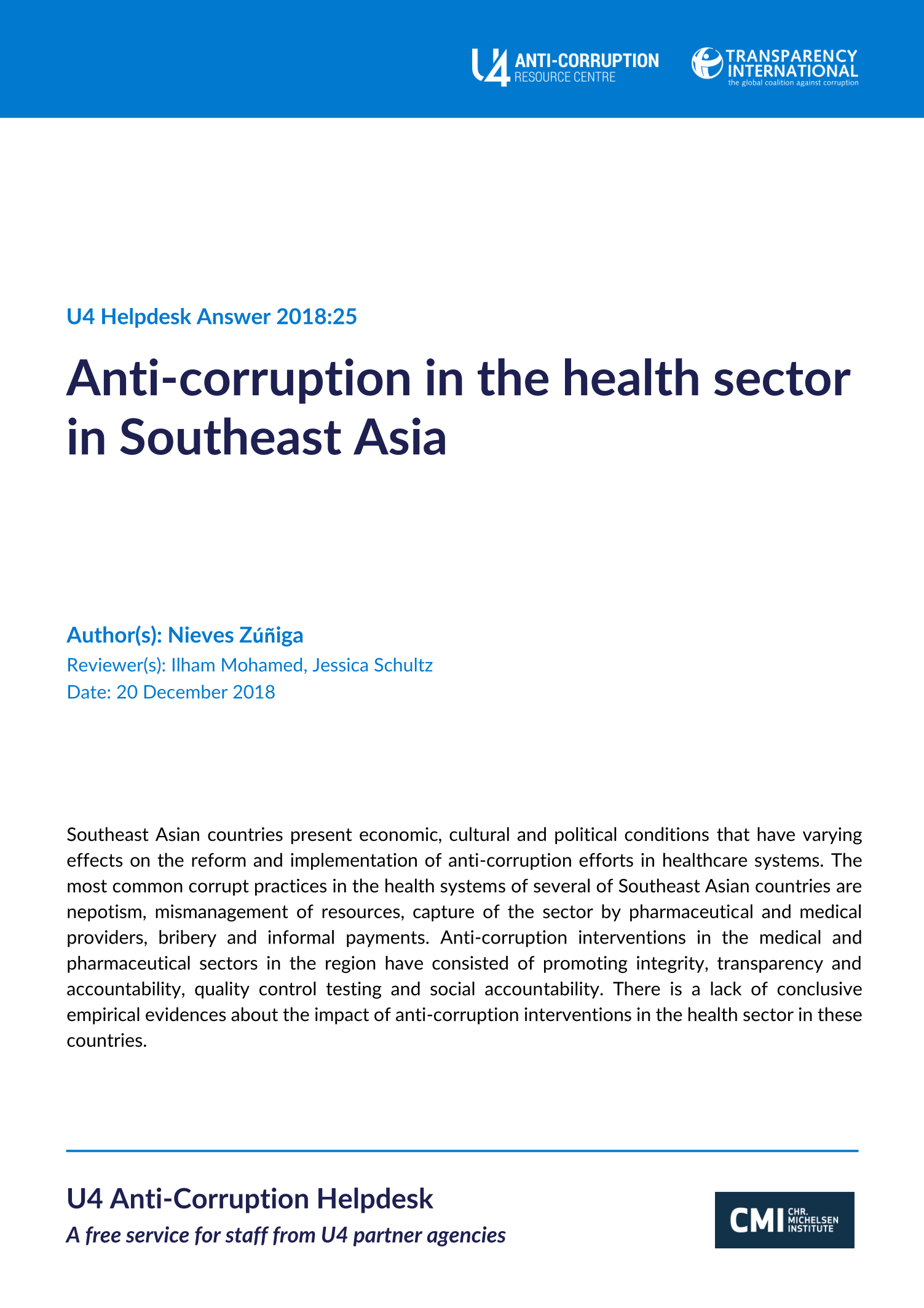Main points
- In some Southeast Asian countries, anti-corruption interventions to promote integrity in the health sector clash with social expectations of how social interactions should take place.
- National programmes to guarantee health coverage to poorer populations have indirectly helped to reduce the incentives for bribery in health service delivery.
- International initiatives to promote transparency and accountability in the pharmaceutical sector have been implemented in several countries in the region.


